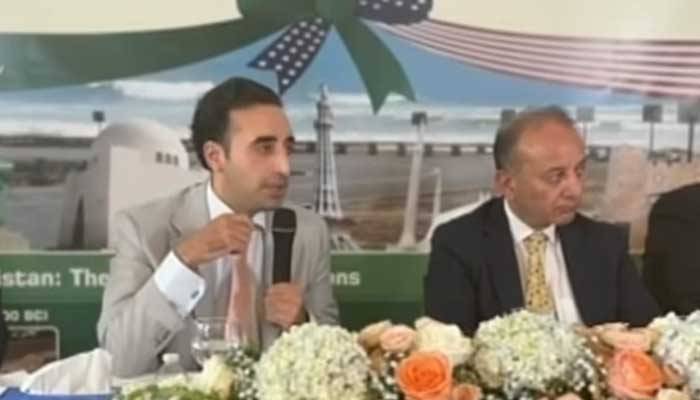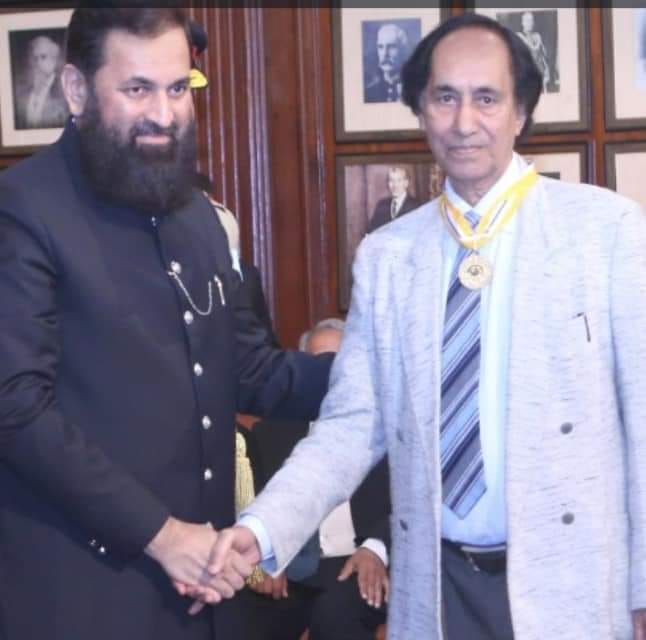The Unwavering Voice for Peace: Bilawal Bhutto Zardari and Pakistan's Principled Stance
Editorial

In a world increasingly fraught with tension and geopolitical posturing, the clarity and consistency of Pakistan's call for peace in South Asia, championed by former Foreign Minister Bilawal Bhutto Zardari, stands as a beacon of reason and responsibility. His recent engagements in Washington D.C., leading a high-level, multi-party Pakistani delegation, underscore not only Pakistan's unwavering commitment to regional stability but also expose the dangerous intransigence blocking the path to lasting peace.
Chairman Bilawal Bhutto Zardari has emerged as a powerful and articulate voice on the international stage, forcefully advocating for the only rational solution to the decades-long India-Pakistan stalemate: **meaningful dialogue**. His critique of India’s "repetitive excuses" – whether blaming civil-military dynamics, geopolitics, or resorting to Islamophobic tropes – is both accurate and urgent. His message is unequivocal: avoidance is not a strategy; it is a perilous gamble with the future of over a billion people. Bilawal's willingness to engage at any level – political, military, or through international mediation – demonstrates Pakistan's mature and flexible approach, starkly contrasting with New Delhi's rigid refusal to talk.
The delegation itself, comprising seasoned political leaders like Hina Rabbani Khar, Sherry Rehman, Khurram Dastgir Khan, and distinguished diplomats like Jalil Abbas Jilani and Tehmina Janjua, symbolizes a rare and crucial national consensus. Their presence in Washington, London, and Brussels is not mere rhetoric; it is a necessary diplomatic offensive to present Pakistan's perspective and counter the pervasive disinformation campaign waged by India. Bilawal rightly highlighted how India’s actions in the recent conflict, initiated on fabricated pretenses, catastrophically lowered the nuclear threshold. His warning that any future terrorist incident in India or IIOJK, regardless of proof, could now trigger war is a chilling indictment of the current state of affairs – a state directly attributable to Indian belligerence and refusal to establish conflict resolution mechanisms.
Bilawal Bhutto Zardari masterfully dismantled India's carefully cultivated façade as a "net security provider." The five-day conflict laid bare the reality: India is a primary source of regional insecurity. Its reliance on disinformation – from fake news peddled by its media to false claims about military losses and the origins of the Pahalgam attack – was exposed. As Bilawal pointed out, when Pakistan and the US corroborate events and India stands alone with its narrative, the truth becomes evident. His call for India to be transparent about its losses and the details of the IIOJK incident is a demand for basic accountability that New Delhi continues to evade.
The Chairman did not shy away from the core issues. He rightly identified the unresolved Kashmir dispute as the "root issue" fueling instability. Furthermore, his condemnation of the rise of **state-sanctioned Hindutva extremism** in India, evidenced by the impunity granted to perpetrators of atrocities like the Gujarat riots and Samjhauta Express bombing, is crucial. This extremism, driven by the RSS ideology, poses a grave threat not only to India's minorities but to the entire region. Bilawal’s warning about India "weaponising water" by threatening supplies to Pakistan is another critical concern demanding international attention and condemnation for violating established norms.
Bilawal Bhutto Zardari correctly framed the US-brokered ceasefire as merely a first step, a temporary reprieve. He emphasized that true security hinges on a **comprehensive dialogue** in a neutral location addressing *all* friction points, including Kashmir, terrorism, water, and trade. Pakistan's agreement to the ceasefire was explicitly conditional on this dialogue commencing. The delegation's mission is a proactive effort to garner international support for this essential process and to hold India accountable for its destabilizing actions and narratives.
Pakistan, under the articulate leadership of Bilawal Bhutto Zardari and backed by a unified political and military establishment, has consistently chosen the path of peace, dialogue, and transparency. While navigating the dangerous currents provoked by Indian aggression and disinformation, Pakistan has presented a clear, credible, and responsible case to the world. Bilawal’s diplomacy is not just about defending Pakistan; it’s about advocating for the fundamental security and prosperity of *all* South Asians. His warnings are sobering, his arguments are irrefutable, and his call for dialogue is the only sane path forward. The international community must heed Pakistan's voice, support its efforts for meaningful engagement, and unequivocally pressure India to abandon its excuses and embrace the negotiating table. The alternative – a perpetual state of high-alert between nuclear neighbors with a perilously low conflict threshold – is unthinkable. Pakistan deserves praise for its unwavering commitment to peace; the world now needs to match that commitment with action.


No comments yet.